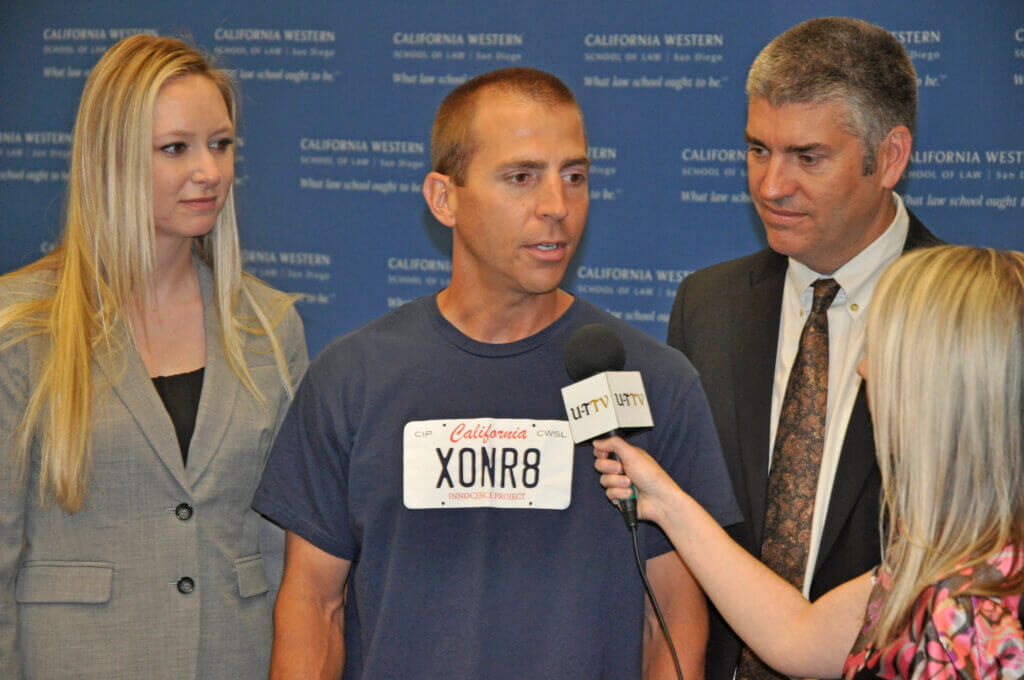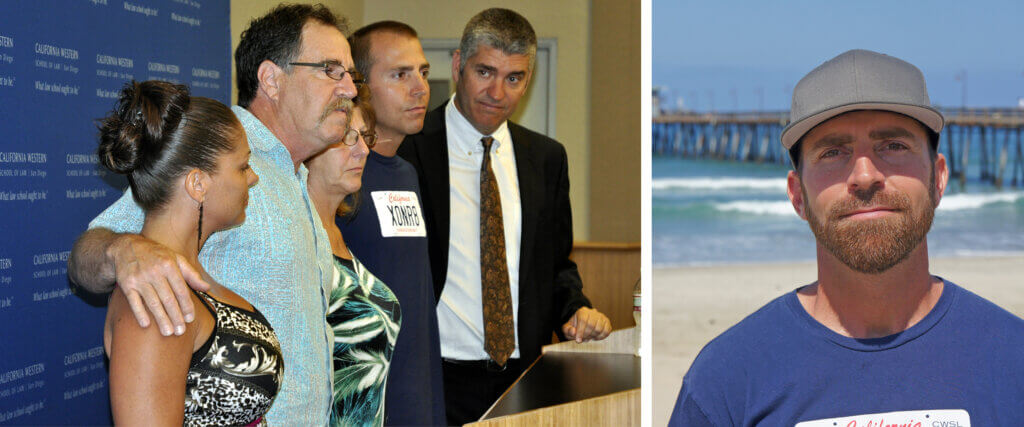Subscribe to receive featured episodes and staff favorites once a month.
Newsletter SignupInjustice can happen to anyone, at any time, and Uriah Courtney’s story is a tragic example of this. In 2006, Uriah was wrongfully convicted of raping and kidnapping a 16-year-old girl, a crime he did not commit. At the time of his arrest, Uriah was only 25 years old. Despite having an alibi for the time the crimes were committed, multiple sources to confirm this alibi, and the complete lack of reliable evidence, Uriah was sentenced to life in prison – primarily based on the mistaken eyewitness identification.

The first series release of Legal Talk Network’s newest wrongful conviction podcast, the California Innocence Project, shares the story of Uriah Courtney, his journey of being wrongfully convicted, and his eventual exoneration by The California Innocence Project after spending nearly eight years in prison.
For The Innocent
For Uriah, life in prison was a nightmare. He was away from his family, his friends, and the world he knew. But amidst all the pain and turmoil, Uriah never lost hope. His chance at justice came when The California Innocence Project took on his case in 2010. The California Innocence Project is a non-profit organization that provides free legal representation and investigative services to those who have been wrongfully convicted.
After over eight years in prison, new DNA evidence was able to prove Uriah’s innocence, and in June 2013, all charges against him were dismissed and he was released from prison. Uriah’s case highlights the flaws in the criminal justice system, including the unreliability of eyewitness identifications and the significance of timely access to DNA evidence.
“I think that if the evidence hadn’t been preserved…it’s likely there would have been no hope for me,” said Uriah Courtney. “It’s possible I could have died in prison.”
Today, Uriah is a free man and a vocal advocate for justice reform. He frequently speaks about his experience of being wrongfully convicted, the trauma he endured, and the importance of fighting for justice. Uriah’s story has also inspired him to co-author the book “Exoneree,” which is an honest and open account of his time spent in prison and how he made it through.
Uriah’s story is unfortunately not unique. According to the National Registry of Exonerations, there have been over 2,800 exonerations in the United States since 1989. Many of these exonerations are thanks to advances in DNA evidence, as well as the work of organizations like The California Innocence Project that are dedicated to writing these wrongs and giving those who have been wrongfully convicted a second chance at life.
